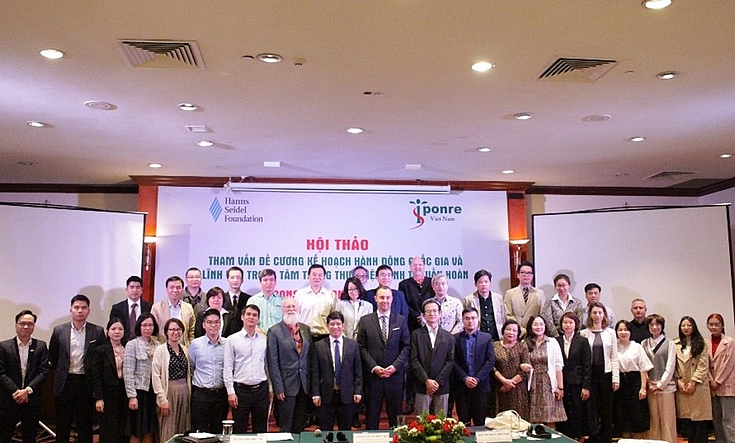Development of Vietnam’s Circular Economy National Action Plan
Consultation workshop on the Outline of the National Action Plan and Key Sectors for Implementing Circular Economy
Participants of the workshop are representatives of various ministries, institutes, universities and international organizations.
HSF
As part of its Socio-Economic Development Strategy 2021 - 2030, Vietnam is pursuing the development of circular economy (CE) models to replace the linear economy. The Law on Environmental Protection in 2020 has enshrined CE principles in Article 142. Moreover, the Prime Minister has endorsed the Circular Economy Development Project in Vietnam by Decision No. 687/QD-TTg on June 07, 2022. This project strives to promote CE business models that are consistent with the global trend and the requirements of economic recovery and sustainable development goals (SDGs) implementation. It also aims to facilitate economic restructuring and the transformation of growth model towards modernity. ISPONRE is assigned by MONRE to develop the National Action Plan on Circular Economy (NAPCE).
The event aimed to consult various stakeholders, including public and private sectors, academia and NGOs, to finalize the outline of NAPCE. The participants provided technical feedbacks and constructive comments on all CE indicators of the NAPCE. Assoc Prof Dr Nguyen Dinh Tho, Director General of ISPONRE, said that the Vietnam Government has set the target of net-zero emissions by 2050. He noted that this is a big and challenging task that needs to be assessed for feasibility. Representatives of MONRE and other ministries agreed that the indicators should be flexible and adaptable to the current capacities of different industries. They also stressed the importance of transparent data and information in implementing CE, especially for private businesses and market stakeholders.
Mr Michael Siegner, Resident Representative of HSF Vietnam, spoke at the workshop.
HSF
The NAPCE is a collaboration effort that calls for the involvement and support of all stakeholders. This consultation workshop is a fruitful event that collected useful feedback for the NAPCE’s draft. HSF has been a long-term partner of ISPONRE in supporting the promotion of circular economy that strives to make Vietnam a more circular and sustainable country.


